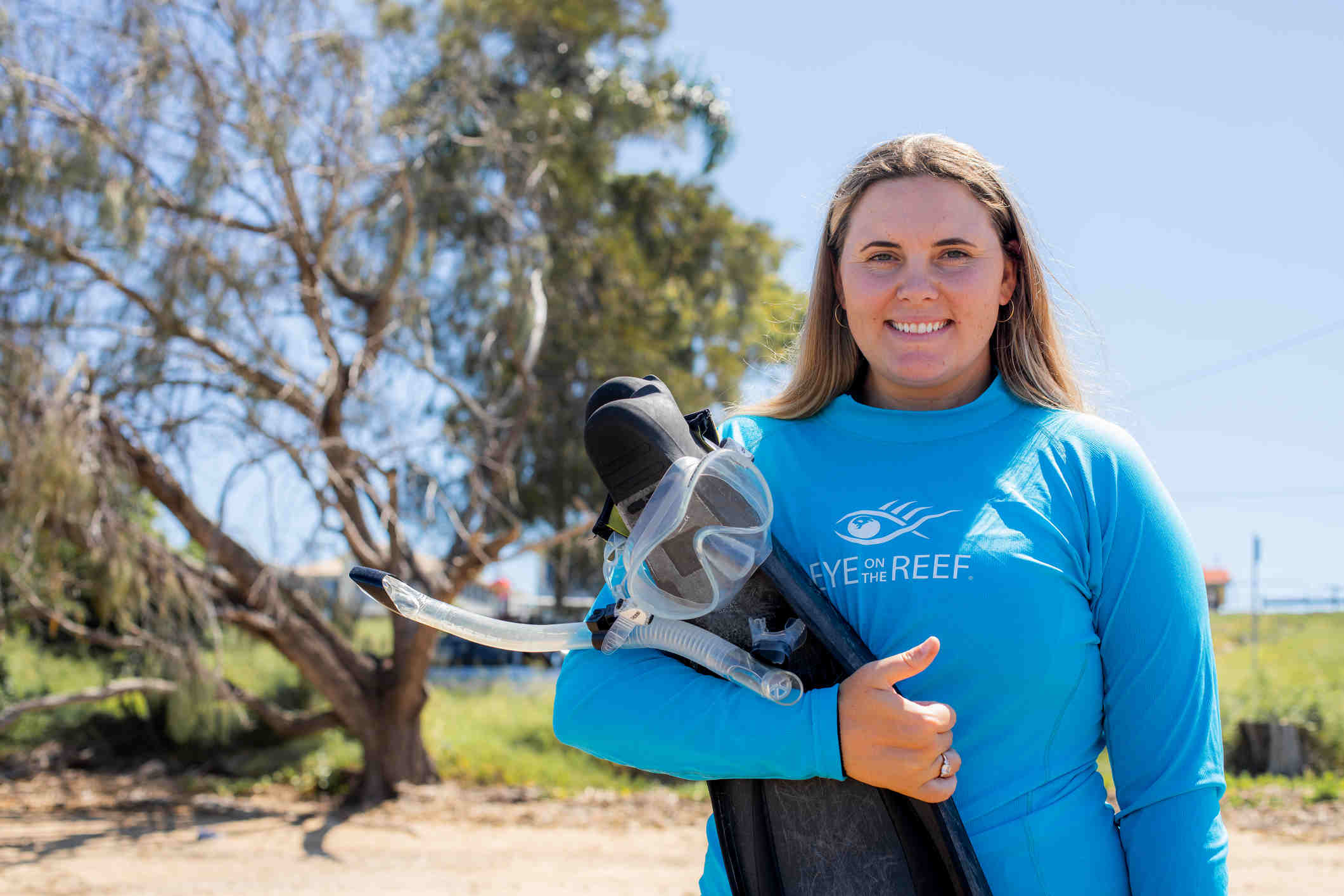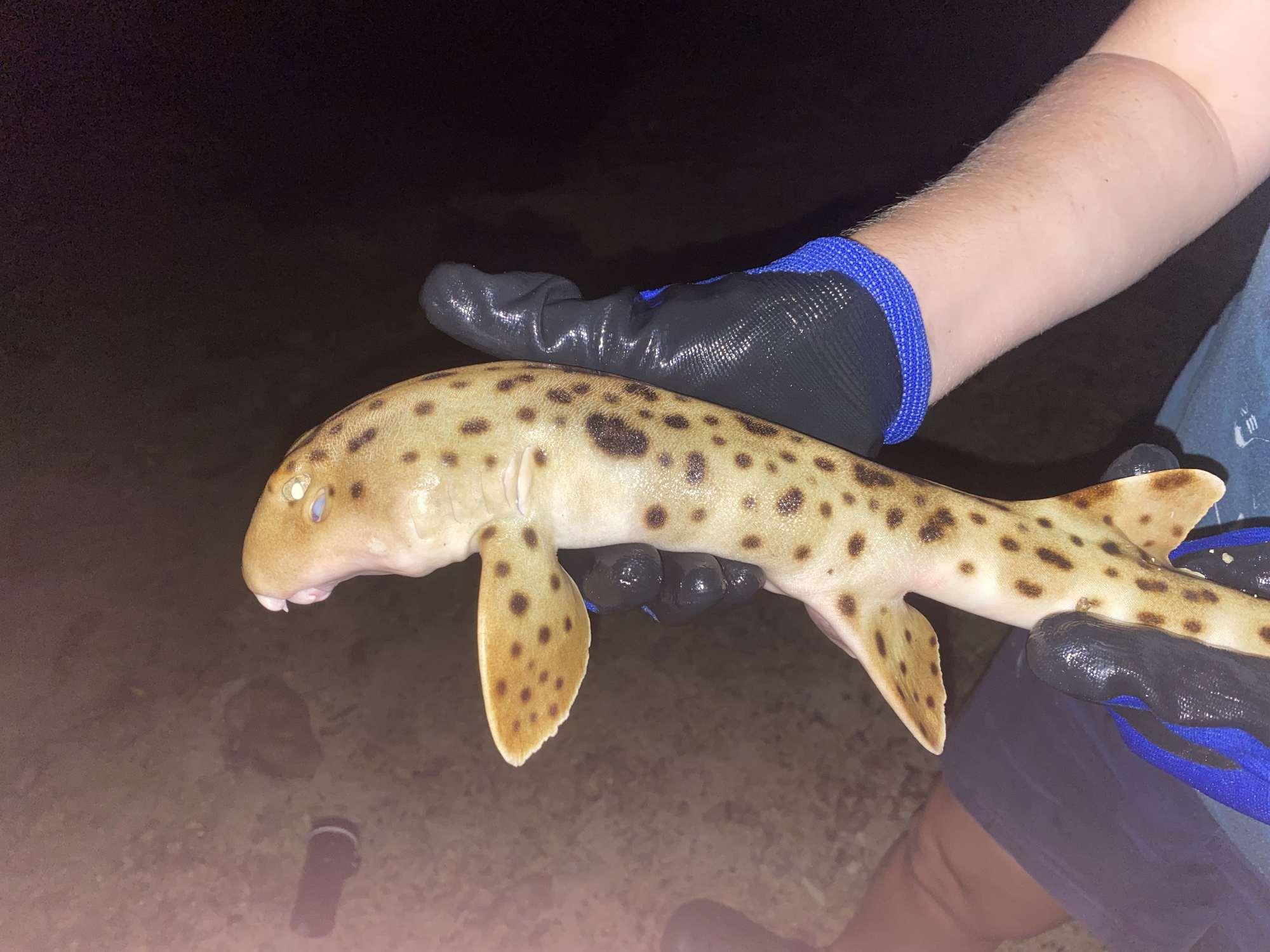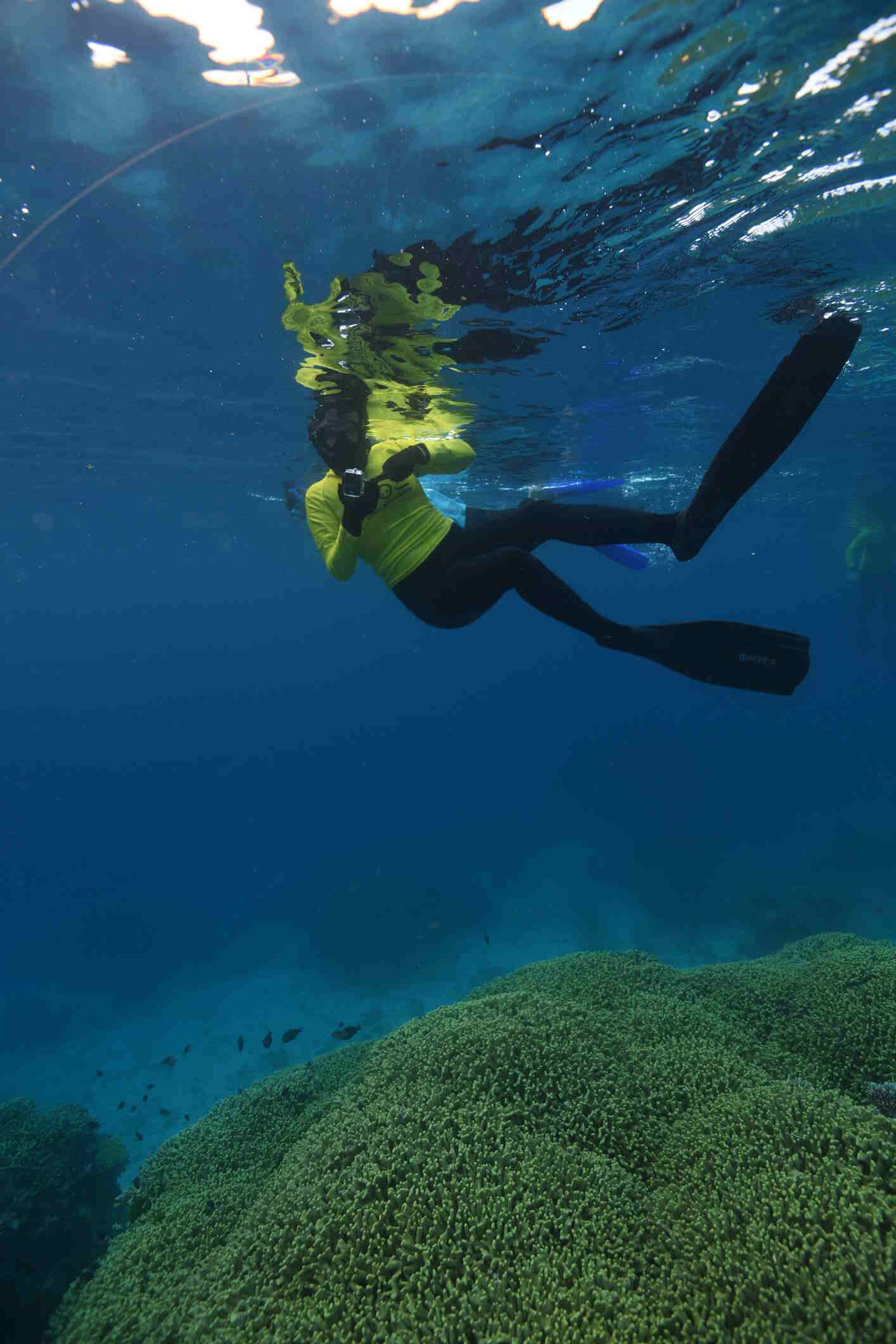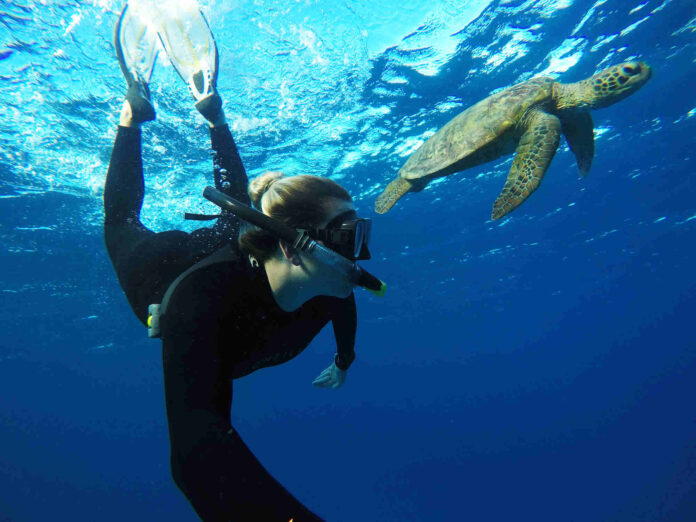A popular Instagrammer’s viral posts have helped put the spotlight on the Great Barrier Reef, and now she hopes her research can do the same.
Jacinta Shackleton, whose underwater encounters have become online sensations, recently graduated from the University of the Sunshine Coast with first-class honours after completing research into one of the reef’s more unusual sea creatures, the ‘walking’ epaulette shark.
“My UniSC research was really the perfect combination of my passion for underwater photography, my role as a master reef guide and storyteller on Lady Elliot Island, and my commitment to marine conservation,” she said.
“I’ve snorkelled with tiger sharks, mating turtles, feeding sharks and I’ve been lucky enough to also capture on camera elusive species like the ornate eagle eay and the smalleye stingray – the largest and rarest in the world.

“Posting my images on social media allows me to capture their different personalities and give people around the world the chance to also experience seeing these amazing creatures in their underwater environment.
“It is the perfect platform to reach, inspire and educate people about why caring and protecting the Great Barrier Reef is so vital.”
Do you have an opinion to share? Submit a Letter to the Editor with your name and suburb at Sunshine Coast News via: news@sunshinecoastnews.com.au
Along with her 200,000-plus Instagram followers, Jacinta’s images and videos were also shared by Tourism and Events Queensland, when she was engaged as an official ‘Queensland creator’ to capture inspiring and authentic content to inspire people to travel.

A recent once-in-a-lifetime encounter with a rainbow-coloured female blanket octopus while snorkelling off Lady Elliot Island was featured by Tourism Australia, the Discovery Channel, BBC Earth, CNN and several other national and global media outlets.
Now, by contributing to marine research, Jacinta hopes to further expand people’s understanding of the need to protect and conserve reef species.
Her honours research investigated the range and genetics of epaulette sharks (Hemiscyllium ocellatum), a reef species found on the Great Barrier Reef that has the rare adaptive ability to survive low-oxygen conditions by switching off non-essential brain functions.

“Before starting this research, I would spend hours and hours at low tide on Lady Elliot Island photographing these beautiful, interesting creatures that can stay out of water for two hours and walk on their fins,” she said.
“As the climate is changing, research into ray, shark and skate species with adaptive abilities, like the epaulette shark, is going to become more and more important.”
She studied the differences in spot patterns of individuals sharks, and genetic analysis to fill in gaps in knowledge about their population structure and distribution.
“These insights can now be used to better inform management and conservation and serve as a precursor for current and future studies within this genus,” she said.
Associate Professor Kathy Townsend said Jacinta’s research was “cutting-edge” as it combined algorithm-supported pattern recognition with population genetics.
More information on opportunities for higher degree by research with UniSC is available at University of Sunshine Coast.
SUBSCRIBE here now for our FREE news feed, direct to your inbox daily!





